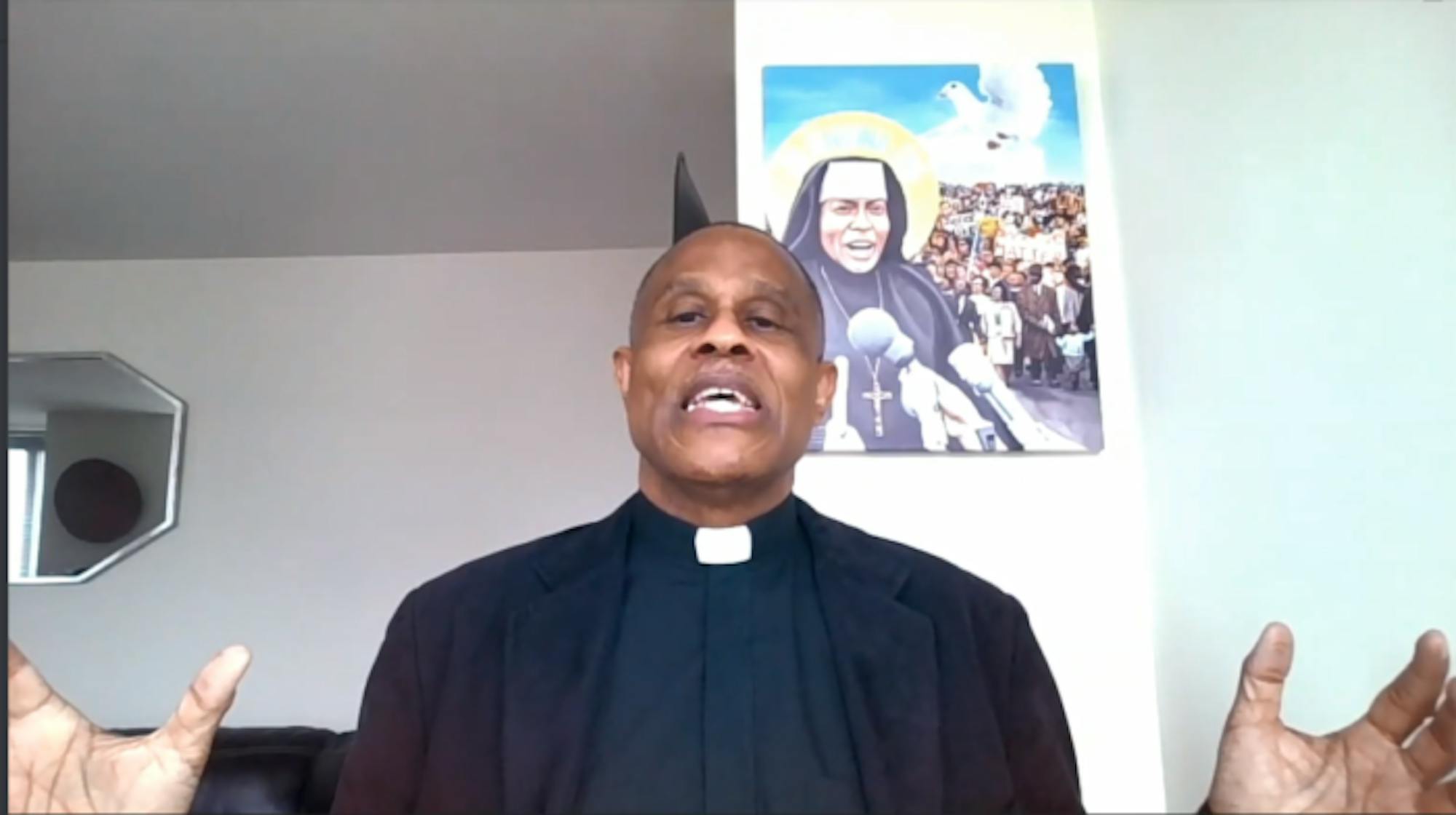Fr. Bryan Massingale spoke on the role the Catholic Church plays in battling racial injustice during the Klau Center for Civil and Human Rights’ lecture series “Building an Anti-Racist Vocabulary” on Friday.
Massingale is a professor of theology and social ethics at Fordham University and a leader in the field of theological ethics. He opened his presentation Friday talking about the disproportionate effect the COVID-19 pandemic has on African Americans.
“Persons of color have been adversely infected and affected by this disease, and even now we are seeing a great racial disparity in terms of who has access to the vaccine,” Massingale said.
He then discussed other issues surrounding race that have been brought to light in the past few months, specifically referencing the death of George Floyd and the flying of confederate flags during the attack on the Capitol in January.
“These are the signs of the times and it calls for a response from the light of the gospel,” Massingale said. “We cannot talk about our Catholic faith unless we own the ambivalence of the Catholic witness to racial justice.”
Although Latinos are becoming far more represented in the Church than they were in the past, Massingale said he still worries about the racism rooted in many people who refer to themselves as Catholic.
He referenced a quote from Fr. Cyprian Davis: “In another decade or so U.S. Catholics will learn that our Church is more black, brown and in-between than Caucasian and more Catholic than they dreamed. Will we be prepared for that that will mean?”
“The answer, sadly, is no,” Massingale said.
Massingale expressed his disappointment at the large numbers of white Catholic community members who are supportive of white nationalism.
“When we look at white Catholic support for white nationalism, we see a very disturbing trend,” Massingdale said. “We know that a majority of white Catholics voted for the former president in 2016, 54%.”
He refutes the claim white Catholics only voted for Trump because he was pro-life, citing research that mentioned Trump’s stances on immigration and race were far more important and determinative for white support.
Massingale discussed the Catholic community’s relationship with the Black Lives Matter movement.
“Another thing we have to be honest about is we have a record of Catholic hostility towards Black Lives Matter, which is the major movement for civil rights and racial justice in our country,” Massingdale said.
Massingale referenced “Open Wide Our Hearts: The Enduring Call to Love — A Pastoral Letter Against Racism,” which was released by the United States Conference of Catholic Bishops in 2018. He said the letter failed to address the issue of white privilege or the Black Lives Matter movement, and did not criticize the Trump administration.
“When white people are present in the document, they're either passive or saviors, but are never agents of injustice,” Massingale said.
In order to actively be “agents of injustice” Massingale stressed the importance of having tough conversations with people, even if they are uncomfortable.
Massingale said he responds to those who ask him how to talk about race without making white people feel uncomfortable with the question, “Why is it the only group in American society that are never supposed to feel uncomfortable about race are white people?”
He outlined his opinions regarding abortion and the role Catholics should play in discussing this issue. In order to be truly pro-life, Massingale said Catholics have to be against abortion in practice, as well as the societal conditions that may make it attractive.
“This means that pro-life means a concern for the child after birth, as well as before,” Massingale said. “We must give every child coming into the world a welcome worthy of a person.”
In discussing what he hopes to see in the future, Massingale said he wanted Black children to have the same basic necessities as all others.
“I want unborn Black children to live in a world where they eat nutritious food,” Massingale said. “Breathe fresh air. Drink clean water. Where they can breathe and not have their breath crushed from them. Where they can live without fear. Where they can sit in a park, go jogging, sleep in their homes and not be killed.”
Fordham University professor speaks on racial injustice in lecture series
Massing
Fr. Bryan Massingale, professor of theology and social ethics at Fordham University, discussed the importance of diversifying the Catholic Church and supporting the Black Lives Matter movement.









